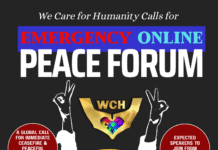INTERNATIONAL CONFERENCE
Organize by:
International Business council Qatar
In collaboration with
European Asian institute
Proposed date: 25th – 27th July 2025
Venue: Golden ocean hotel Doha, Qatar
Conference Overview
The conference aims to foster collaboration, knowledge exchange, and investment partnerships between Sub-Saharan Africa and the Middle East. It will focus on sustainable development goals (SDGs), economic growth, and investment opportunities in key sectors such as renewable energy, agriculture, infrastructure, technology, and healthcare. The event will bring together government officials, business leaders, investors, academics, and NGOs to explore synergies and create actionable strategies for mutual benefit.
Conference Objectives
1. Promote Sustainable Development: Highlight the role of sustainable practices in driving economic growth and social development in both regions.
2. Facilitate Investment Opportunities: Showcase high-potential sectors in Sub-Saharan Africa and connect them with Middle Eastern investors.
3. Strengthen Bilateral Relations: Foster stronger economic and cultural ties between the two regions.
4. Knowledge Sharing: Share best practices, innovations, and success stories in sustainable development and investment.
5. Networking: Provide a platform for stakeholders to build long-term partnerships.
Target Audience
– Government representatives from Sub-Saharan Africa and the Middle East
– Investors and venture capitalists
– CEOs and business leaders
– NGOs and development organizations
– Academics and researchers
– Startups and entrepreneurs
– Media representatives
Conference Agenda
Day 1: Setting the Stage for Collaboration
Morning Session: Opening Ceremony
– Welcome Address by Host Country Representative
– Keynote Speech: “The Role of Sustainable Development in Bridging Continents”
– Panel Discussion: “Opportunities for Collaboration between Sub-Saharan Africa and the Middle East”
Afternoon Session: Sectorial Focus
– Renewable Energy: Opportunities for Investment and Innovation
– Agriculture and Food Security: Leveraging Technology for Sustainable Growth
– Infrastructure Development: Building the Foundations for Economic Growth
Evening: Networking Reception
– Informal networking opportunities with light refreshments and cultural performances.
Day 2: Deep Dive into Investment Opportunities
Morning Session: Investment Opportunities in Sub-Saharan Africa
– Presentation: “High-Growth Sectors in Sub-Saharan Africa”
– Panel Discussion: “Challenges and Opportunities for Middle Eastern Investors”
Afternoon Session: Case Studies and Success Stories
– Case Study 1: Renewable Energy Projects in Sub-Saharan Africa
– Case Study 2: Middle Eastern Investments in African Agriculture
– Case Study 3: Technology and Innovation Hubs in Africa
Evening: Gala Dinner
– Keynote Speech: “The Future of Africa-Middle East Collaboration”
– Awards Ceremony: Recognizing Outstanding Contributions to Sustainable Development
Day 3: Building Partnerships for the Future
Morning Session: Workshops and Breakout Sessions
– Workshop 1: “How to Structure Successful Investments in Africa”
– Workshop 2: “Sustainable Development Goals (SDGs) and Their Impact on Investment”
– Workshop 3: “Public-Private Partnerships for Infrastructure Development”
Afternoon Session: Closing Plenary
– Panel Discussion: “The Way Forward: Strengthening Africa-Middle East Ties”
– Closing Remarks by Conference Organizers
– Announcement of Key Outcomes and Next Steps
Evening: Cultural Exchange Event
– Showcasing the rich cultural heritage of both regions through music, dance, and art.
Expected Outcomes
1. Investment Deals: Facilitate the signing of Memoranda of Understanding (MoUs) and investment agreements between stakeholders.
2. Policy Recommendations: Develop actionable policy recommendations to support sustainable development and investment.
3. Networking Opportunities: Create a platform for ongoing collaboration and partnership building.
4. Knowledge Repository: Publish a conference report summarizing key insights, case studies, and best practices.
PROPOSED BUDGET
- Venue Rental
Conference Hall Rental (3 Days): $30,000 Includes
- main hall,
- Breakout rooms,
- Exhibition space
- Audio-Visual Equipment
- Wi-Fi and IT Support
Total cost for venue: $ 30,000
- Catering
- Welcome Reception (Day 1): $5,000 (Light refreshments for 200-300 attendees)
- Lunch (3 Days): $15,000 (Buffet lunch for 200-300 attendees per day)
- Coffee Breaks (3 Days): $5,000 (Morning and afternoon breaks)
- Gala Dinner (Day 2) $20,000 (Formal dinner for 200-300 attendees)
Total Catering Costs: $45,000
- Speakers and Panelists
- Keynote Speakers (5): $40,000 (Includes travel, accommodation, and honorarium)
- Panelists (10): $20,000 (Includes travel and accommodation)
- Moderators (5): $10,000
Total Speaker Costs: $70,000
- Marketing and Promotion
- Website Development and Maintenance: $3,000
- Social Media and Digital Marketing: $10,000
- Print Materials (Brochures, Banners, etc.) $5,000
- Media Coverage and PR: $10,000
Total Marketing Costs$25,000
- Logistics and Event Management
- Event Planning and Coordination: $10,000 (Includes hiring an event management company)
- Staff and Volunteers: $5,000 (Includes temporary staff and volunteer coordination)
- Transportation and Shuttle Services: $8,000 (For speakers VIPs and attendance)
- Signage and Branding: $2,000
Total Logistics Costs: $25,000
- Cultural Event
- Performers and Artists: $10,000
- Stage and Lighting Setup: $3,000
- Cultural Exhibits and Displays: $2,000
Total Cultural Event Costs: 15,000
- Miscellaneous
- Contingency Fund (10% of Total Budget): $20,000 (For unforeseen expenses)
- Insurance and Permits: $3,000
- Registration and Badges: $2,000
Total Miscellaneous Costs: $25,000
Grand total of the estimated budget:- $235,000
Notes:
1. Sponsorship: A significant portion of the budget can be offset through sponsorships. For example, Platinum, Gold, and Silver sponsors can cover specific costs like catering, venue, or marketing.
2. Registrations: Revenue from attendee registration fees can also help cover costs. For 200-300 attendees, the registration could range from $300-$500 per person.
3. Partnerships: Collaborating with governments, NGOs, and private sector organizations can reduce costs through in-kind contributions (e.g., venue, marketing, or logistics support).
This budget provides a realistic estimate for organizing a high-quality, impactful conference. (All participants should take care of their flight ticket, accommodation and visa.) Adjustments can be made based on available resources, sponsorships, and partnerships. Let me know if you need further details or assistance!
- Next Steps
- Identify the speakers, and the VIPs
- Confirm Key Stakeholders: Reach out to potential speakers, sponsors, and partners.
- Finalize Agenda: Develop a detailed agenda with confirmed speakers and sessions.
- Promote the Event: Launch a marketing campaign to attract attendees and sponsors.
- Logistics Planning: Secure the venue, catering, and other logistical arrangements.
- Conclusions
This proposal outlines a comprehensive plan for a 3-day conference that will not only highlight the potential for sustainable development and investment between Sub-Saharan Africa and the Middle East but also create a platform for meaningful collaboration and partnership building.





